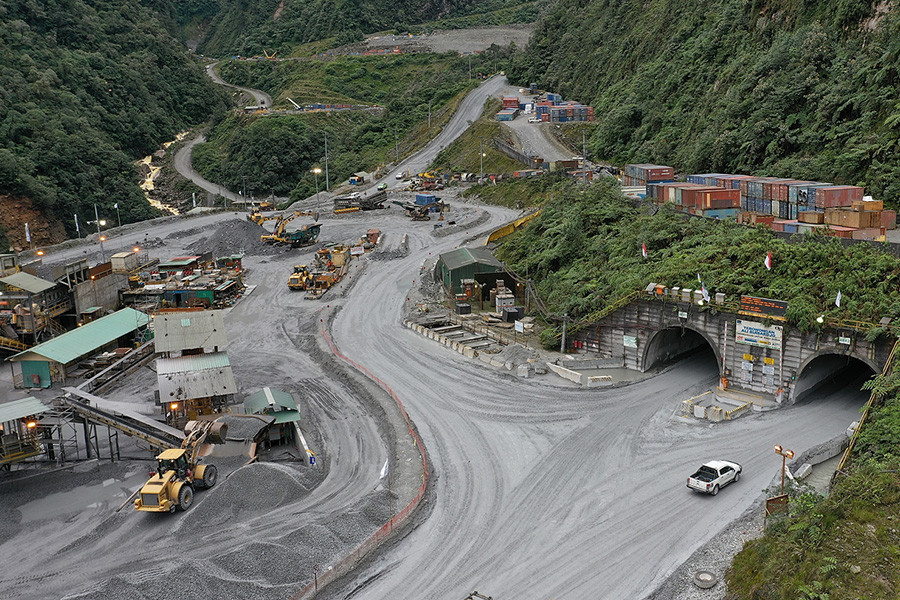Popular Reads
Top Results
Can't find what you're looking for?
View all search resultsPopular Reads
Top Results
Can't find what you're looking for?
View all search resultsAI enhances Indonesia's mineral downstreaming toward sustainability
Change text size
Gift Premium Articles
to Anyone
A
rtificial Intelligence technology is playing a key role in driving the success of Indonesia's mineral downstreaming policy. By integrating AI and big data, Indonesia has built an innovative geospatial system capable of optimizing natural resource management that has also strengthened its position in the global supply chain.
A research paper from Binus University, titled “Big Data Analysis of Downstream Policy: Indonesia's Strategy and Diplomacy in Facing Global Dynamics", highlights the benefits of AI in supporting economic diplomacy and downstream strategies.
Alexander A.S. Gunawan, a member of the Binus research team, explained that the use of modern technology like Peta Hilirisasi (petahilirisasi.id), or Downstream Map, provided an in-depth view of strategic commodities such as nickel, bauxite, cobalt and quartz sand.
Peta Hilirisasi, an AI-based geospatial dashboard, helps governments and industry players identify mineral potential, map resource distribution and predict market trends. Using data gathered over a period of more than two decades, the platform provides evidence-based insights that help accelerate decision-making in the downstream sector.
Indonesia’s downstream diplomacy has also benefited greatly from AI integration, helping the government strengthen its arguments in international negotiations. The use of geospatial data has made it easier for Indonesia to demonstrate its commitment to domestic processing and sustainability, especially amid challenges like the European Union's lawsuit at the World Trade Organization over Indonesia’s ban on raw nickel exports.
Alexander added that the benefits of AI in business decision-making had been widely discussed in various international studies. One such research was "Artificial Intelligence for the Real World" by Thomas H. Davenport and Rajeev Ronanki, which confirms that AI is able to provide faster and more accurate insights.
McKinsey’s report, The State of AI in Early 2024, projects that more than 65 percent of organizations across sectors will begin adopting AI to support strategic decision-making. Other studies highlight a similar trend in Indonesia, particularly in the financial and manufacturing sectors.
However, research that specifically discusses raw materials downstreaming, diplomacy and related legal frameworks is still very limited.
“By combining AI and strong regulations, we can mitigate environmental risks while ensuring that mineral downstreaming supports inclusive national economic development,” Alexander said.
Through a multidisciplinary approach that integrates technology, law and international business, Indonesia has succeeded in creating a downstreaming policy that is adaptive to global dynamics.
According to the Binus research, this success will open opportunities for Indonesia to become not only a global manufacturing hub but also a leader in technology-based resource management.










